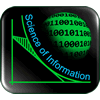Abstract:
In this talk, we show that a sequence of Reed-Muller codes with increasing length achieves capacity on the binary erasure channel if the sequence of rates converges. This possibility was first discussed by Dumer and Farrell in 1994 but has been settled so far only for some cases where the limiting code rate is 0 or 1. In fact, our primary technical result is quite general and also includes extended primitive narrow-sense BCH codes and all other affine-invariant codes. The method can be seen as a new approach to proving that a sequence of deterministic linear codes achieves capacity on an erasure channel under maximum a posteriori decoding. Rather than relying on the precise structure of the codes, this method requires only that the codes are highly symmetric. In particular, the technique applies to any sequence of linear codes where the block lengths are strictly increasing, the code rates converge, and the permutation group of each code is doubly transitive. This also provides a rare example in information theory where symmetry alone implies near-optimal performance. The primary tools used in the proof are the sharp threshold property for symmetric monotone Boolean functions and the area theorem for extrinsic information transfer functions.
Short Bio:
Henry D. Pfister received his Ph.D. in electrical engineering in 2003 from the University of California, San Diego and he is currently an associate professor in the electrical and computer engineering department of Duke University. Prior to that, he was a professor at Texas A&M University (2006-2014), a post-doctoral fellow at the École Polytechnique Fédérale de Lausanne (2005-2006), and a senior engineer at Qualcomm Corporate R&D in San Diego (2003-2004).
He received the NSF Career Award in 2008, the Texas A&M ECE Department Outstanding Professor Award in 2010, and was a coauthor of the 2007 IEEE COMSOC best paper in Signal Processing and Coding for Data Storage. He is currently an associate editor in coding theory for the IEEE Transactions on Information Theory (2013-2016) and a Distinguished Lecturer of the IEEE Information Theory Society (2015-2016).





